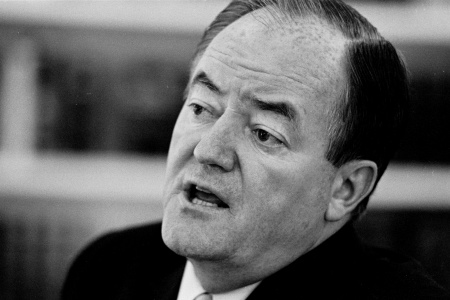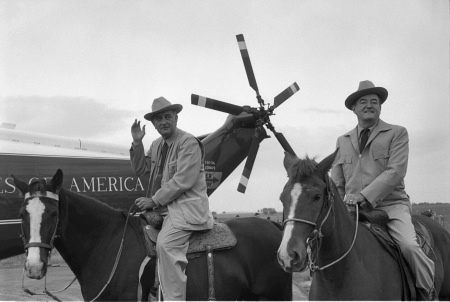Hubert H. Humphrey was born on May 27, 1911, in Wallace, South Dakota.
He left South Dakota to attend the University of Minnesota but returned to South Dakota to help manage his father's drug store early in the depression. He attended the Capitol College of Pharmacy in Denver, Colorado, and became a registered pharmacist in 1933.
On September 3, 1936, Humphrey married Muriel Fay Buck in Huron, South Dakota. He returned to the University of Minnesota and earned a B.A. degree in 1939. In 1940 he earned an M.A. in political science from Louisiana State University and returned to Minneapolis to teach and pursue further graduate study, but began working for the W.P.A. (Works Progress Administration).
He moved on from there to a series of positions with wartime agencies. In 1943, he ran unsuccessfully for Mayor of Minneapolis and returned to teaching as a visiting professor at Macalester College in St. Paul. Between 1943 and 1945, Humphrey worked at a variety jobs, including teaching at Macalester, serving as a news commentator for radio station WTCN, and managing an apartment building. In 1945, he was elected Mayor of Minneapolis and served until 1948. In 1948, at the Democratic National Convention, he gained national attention when he delivered a stirring speech in favor of a strong civil rights plank in the party's platform. In November of 1948, voters in Minnesota elected Humphrey to the United States Senate. While in the Senate, he was known as a Senate liberal, working on issues of civil rights, social welfare, and fair employment. He served as the Senate Democratic Whip from 1961 to 1964.
In 1964, at the Democratic National Convention, President Lyndon B. Johnson asked the convention to select Humphrey as the Vice Presidential nominee. The ticket was elected in November in a Democratic landslide. In 1968, Humphrey was the Democratic Party's candidate for President, but he was defeated narrowly by Richard M. Nixon. After the defeat, Humphrey returned to Minnesota to teach at the University of Minnesota and Macalester College. He returned to the U.S. Senate in 1971, and he won re-election in 1976. He died January 13, 1978 of cancer. After Humphrey's death, the governor of Minnesota appointed Humphrey's wife, Muriel Buck Humphrey, to fill the vacant Senate seat. She served until November 7, 1978, and was not a candidate for the unexpired term.
Hubert Humphrey's papers are located at the Minnesota Historical Society in St. Paul, Minnesota; the phone number is: 651-296-2143.
Presidential
Succession
Following the Assassination of
President Kennedy, November 22, 1963
Cohen, Dan. Undefeated: The Life of Hubert Horatio Humphrey. Minneapolis: Lerner Publications, 1978.
Feerick, John D. The Vice Presidents of the U.S. 3rd ed. New York: Watts, 1977.
Garrettson, Charles Lloyd III. Hubert H. Humphrey: The Politics of Joy. New Brunswick, NJ: Transaction Publishers, 1993.
Griffith, Winthrop. Humphrey: A Candid Biography. New York: Morrow, 1965.
Humphrey, Hubert H. The Education of a Public Man: My Life and Politics. Garden City, N.Y.: Doubleday, 1976.
Lichtenstein, Nelson, editor. Political Profiles: The Johnson Years. New York: Facts on File, Inc., 1976, pages 293-296.
Martin, Ralph G. A Man for All People: Hubert H. Humphrey. New York: Grosset & Dunlap, 1968.
Ryskind, Allan H. Hubert, An Unauthorized Biography of the Vice President. New Rochelle: Arlington House, 1968.
Solberg, Carl. Hubert Humphrey: A Biography. New York: W. W. Norton Co., 1984.
Thurber, Timothy N. The Politics of Equality: Hubert H. Humphrey and the African American Freedom Struggle. New York: Columbia University Press, 1999.
United States. Congress. Biographical Directory of the United States Congress, 1774-1989. Bicentennial Edition. Washington, D. C.: U.S. GPO, 1989, page 1232.
Waldrup, Carole Chandler. The Vice Presidents: Biographies of the 45 Men Who Have Held the Second Highest Office in the United States. Jefferson, NC: McFarland, 1996.
RELATED LINKS:


